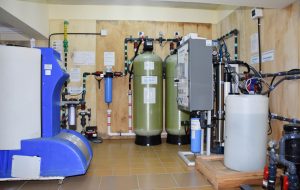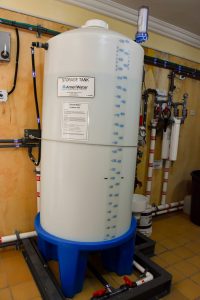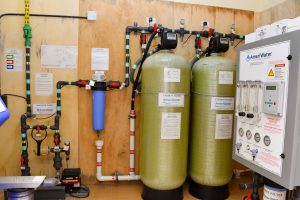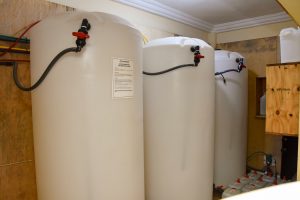
Water treatment plays a vital role in the delivery of safe and effective hemodialysis (HD). Ensuring that water quality meets the required standard of Medical Instrumentation standards and recommendations (or equivalent) is necessary to reduce the incidence of chemical hazards and endotoxemia associated with the use of water for hemodialysis.

Water used for hemodialysis should comply with established quality standards to ensure patient safety. Compliance with these standards requires two well-functioning components: a water treatment system that decontaminates water up to the quality standards; and a distribution system that delivers the treated water to its points of use without recontamination.

At Medicom Renal and Dialysis Centre we ensure the use of appropriate water quality for safe and effective delivery of haemodialysis. Haemodialysis may expose the patient to more than 300 lt of water per week across the semipermeable membrane of the haemodialyser. Healthy individuals seldom have a weekly oral intake of water above 12 lt. The near 30 times increase in water exposure to dialysis patients requires control and monitoring of water quality to avoid excesses of known or suspected harmful elements being carried in the water and transmitted to the patient.

The water that is used for the preparation of haemodialysis fluids is treated to achieve the appropriate quality. The water treatment is provided by a water pre-treatment system which may include various components such as sediment filters, water softeners, carbon tanks, micro-filters, ultraviolet disinfection units, reverse osmosis units, ultrafilters and storage tanks.